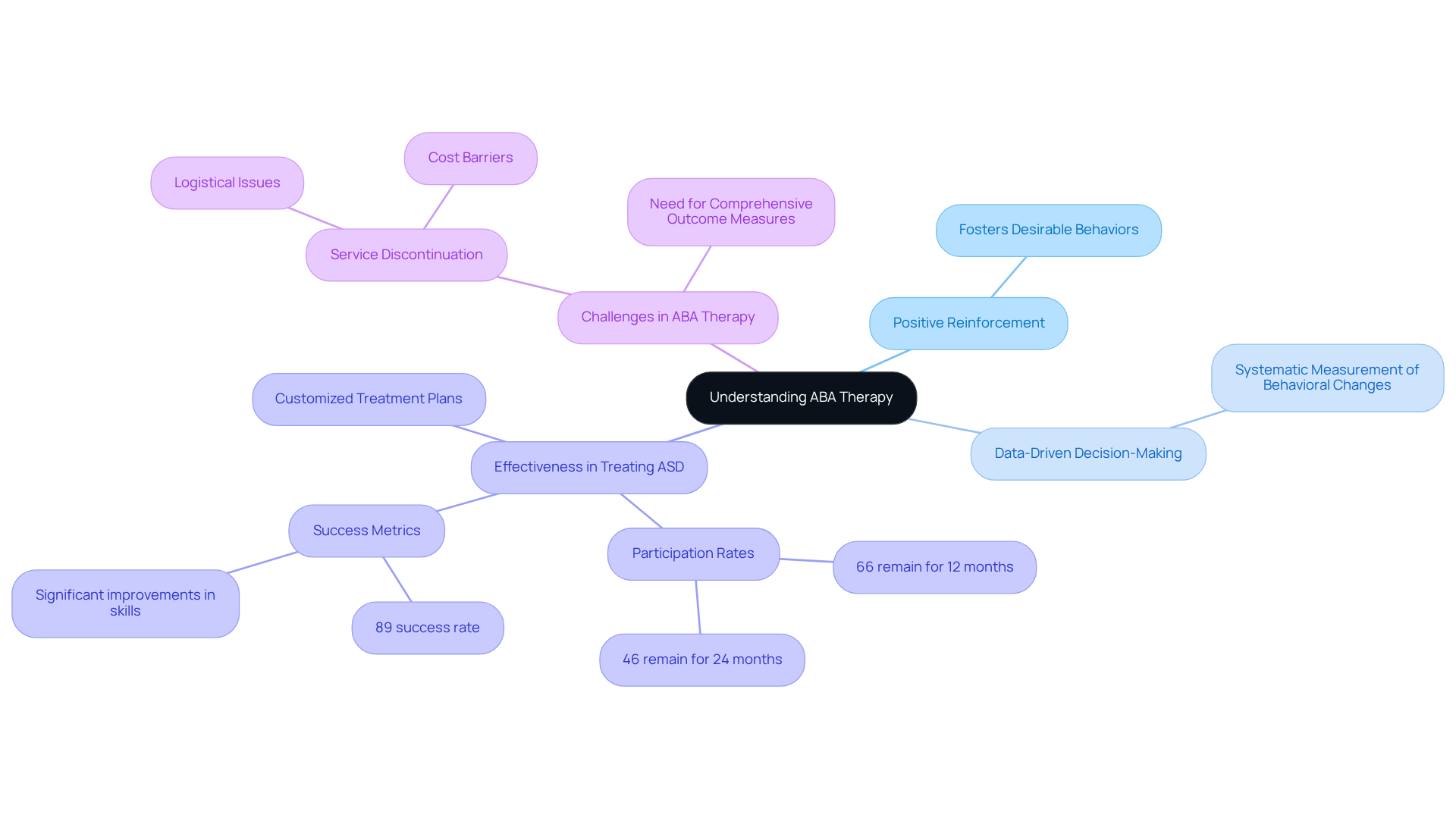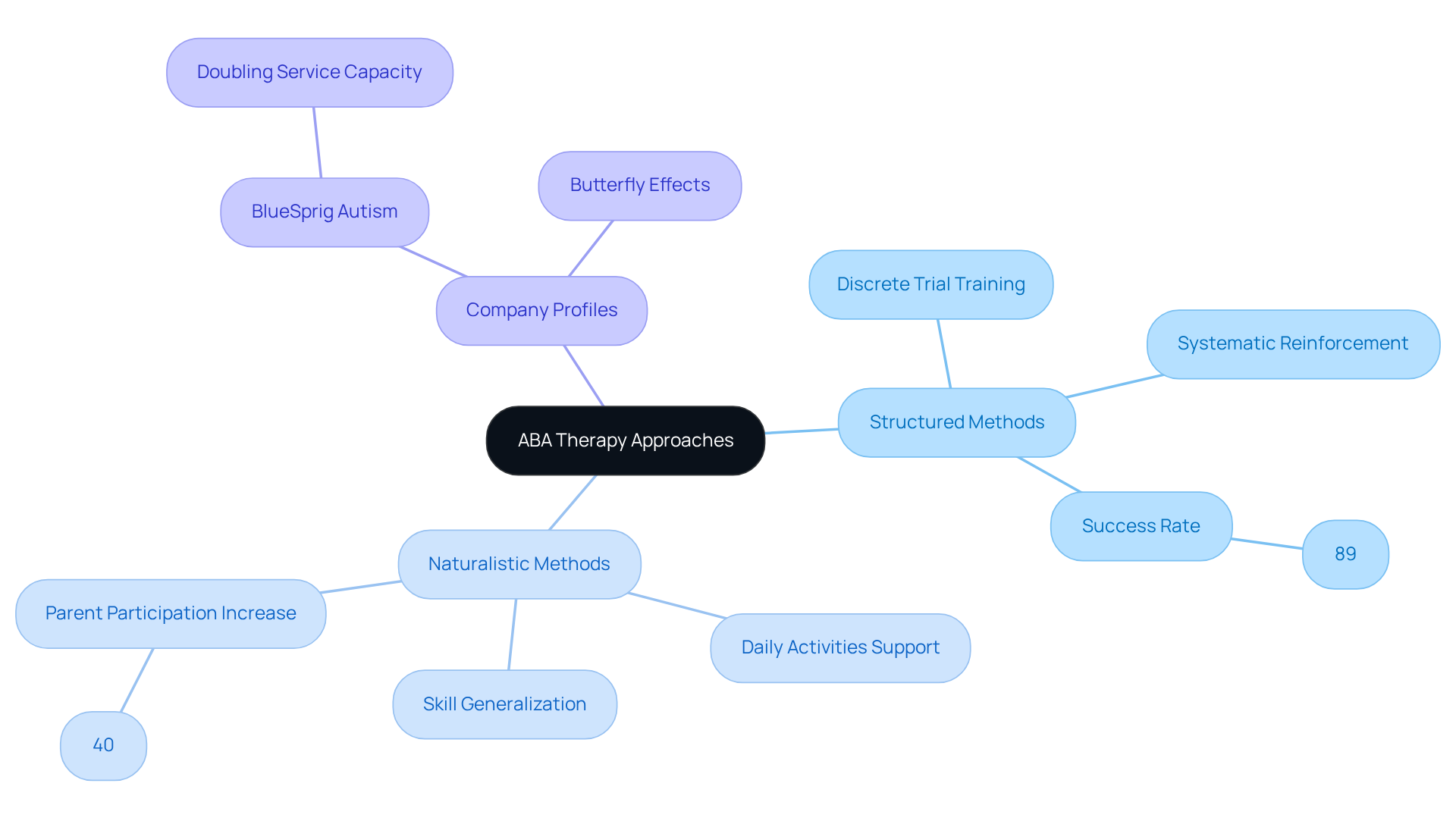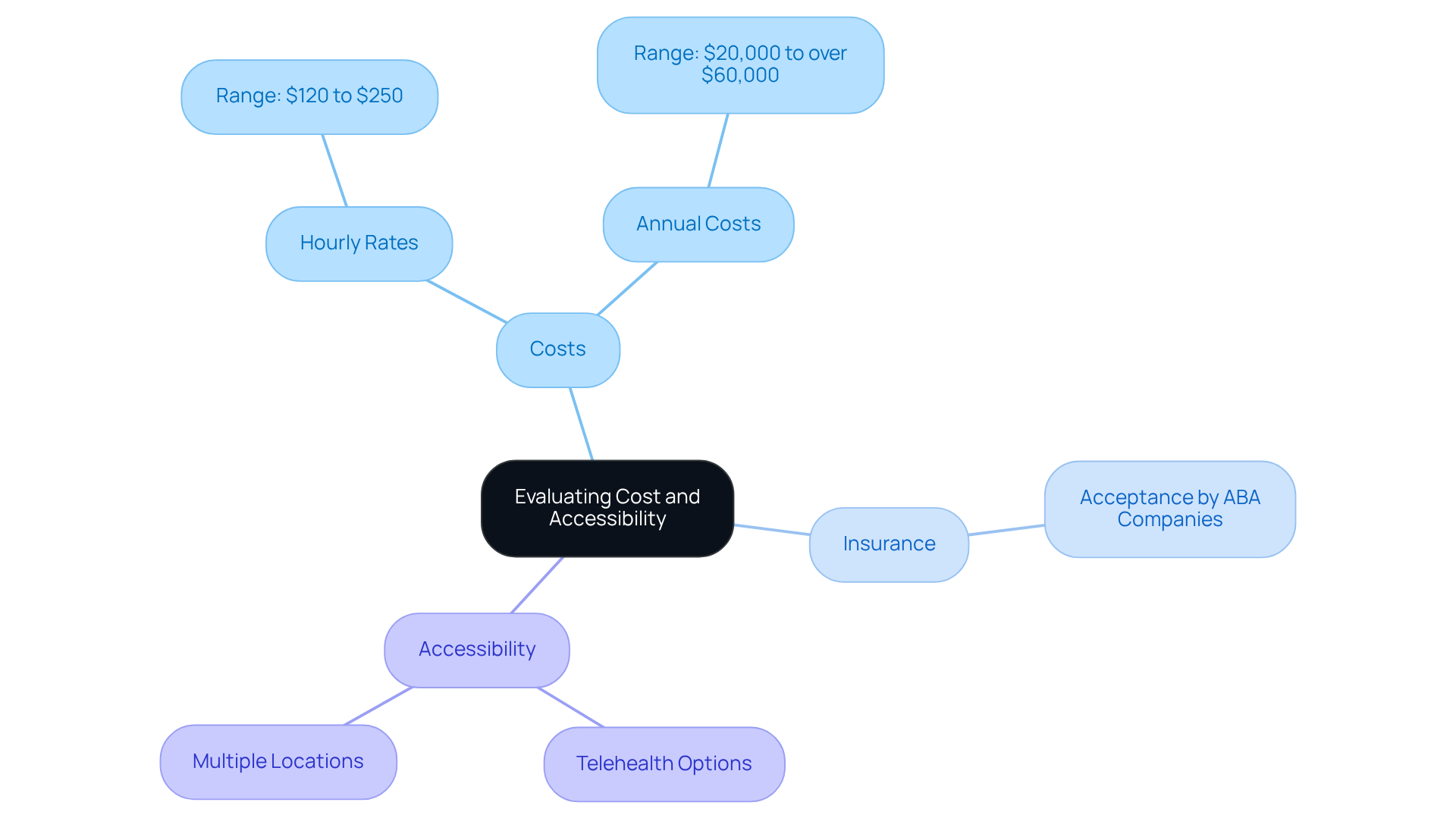July 3, 2025

The article emphasizes critical factors that employers must consider when comparing ABA therapy companies. It highlights the significance of:
By detailing the variations in therapy approaches, the financial implications of hiring decisions, and the importance of client feedback and success rates, it provides a comprehensive evaluation of service quality. This information is vital for employers seeking to make informed decisions in a competitive landscape.
The landscape of Applied Behavior Analysis (ABA) therapy is evolving rapidly, with a growing number of companies offering diverse approaches to support individuals with autism spectrum disorders. For employers, selecting the right ABA therapy provider is not merely a matter of cost; it involves a careful evaluation of effectiveness, accessibility, and alignment with best practices.
How can organizations navigate the complexities of this decision-making process to ensure they partner with a company that meets both their standards and the unique needs of their clients?
This article delves into the key factors that employers should consider when comparing ABA therapy companies, providing insights that can lead to more informed and impactful choices.
Applied Behavior Analysis (ABA) represents a therapeutic approach rooted in behaviorism, concentrating on the modification of observable behaviors via reinforcement strategies. This method hinges on key principles, such as:
Widely recognized for their efficacy in addressing autism spectrum disorders (ASD), ABA therapy companies are characterized by crafted to meet each client's unique needs. Understanding these principles is imperative for employers seeking to partner with ABA therapy companies, as it ensures alignment with evidence-based practices that enhance patient care and outcomes.

When assessing ABA therapy companies, it is crucial to comprehend their unique methods of service delivery. Did you know that structured ABA models emphasize traditional methods such as discrete trial training and systematic reinforcement? These approaches have shown success rates exceeding 89% in improving communication and social skills. Conversely, naturalistic methods incorporate support into daily activities, encouraging skill generalization and often resulting in a 40% increase in parent participation when paired with culturally competent practitioners.
Leading ABA therapy companies, such as BlueSprig Autism and Butterfly Effects, are recognized for their robust training programs for therapists, which ensure high-quality service delivery and adherence to evidence-based practices. Notably, BlueSprig Autism has reported a doubling of its service capacity in recent years, reflecting significant expansion in the field.
While smaller, community-focused entities may offer more and foster closer relationships with families, they often lack the extensive resources and structured training programs of larger organizations. By assessing these profiles, employers can more effectively determine which strategies of ABA therapy companies align with their standards for service quality and patient engagement. Ultimately, this evaluation can significantly enhance the effectiveness of ABA support for their clients.

The companies can differ considerably based on factors such as location, professional qualifications, and the intensity of services required. On average, families may expect to pay between $120 to $250 per hour for therapy sessions, with annual costs ranging from $20,000 to over $60,000.
Have you considered how these costs might affect your hiring decisions? Employers should also evaluate whether the ABA therapy companies accept insurance, as this can significantly influence out-of-pocket expenses for families.
Accessibility is another crucial aspect. Organizations that offer telehealth options or have multiple locations can better assist clients facing geographical or logistical challenges.
By assessing these factors, employers can ensure they select ABA therapy companies that are both financially viable and accessible to their target population.

The demand for Board Certified Behavior Analysts (BCBAs) is projected to increase by 25% by 2026, highlighting a significant opportunity for organizations to enhance their hiring strategies. The effectiveness of (ABA) treatment is often assessed through success rates, which can vary considerably among providers. Research indicates that ABA intervention boasts an impressive overall success rate of approximately 89% in improving skills among children with autism. However, this success is contingent upon various factors, including the intensity of therapy and the unique requirements of each individual.
Understanding autism as a spectrum is crucial, as it manifests differently in each individual, ranging from mild to severe challenges. Have you considered how the specific needs of your clients align with the services offered by potential providers? Client feedback serves as a vital metric; testimonials and reviews provide valuable insights into the experiences of families with specific providers. Firms that actively seek and respond to customer feedback typically report higher satisfaction rates.
Transparency in reporting success rates and showcasing positive client testimonials is essential, especially in a competitive market. Employers should prioritize providers that demonstrate these qualities, as they are indicative of the quality and effectiveness of the services provided. By choosing to partner with a reliable recruitment platform like Hire ABA, you can ensure that your organization is equipped with the best talent to meet the growing demand for BCBA services.
Employers seeking to partner with ABA therapy companies must navigate a complex landscape defined by various treatment methodologies, cost considerations, and effectiveness metrics. The demand for Board Certified Behavior Analysts (BCBAs) is rising, making it essential to understand the principles of Applied Behavior Analysis alongside the unique offerings of different providers. This knowledge is crucial for making informed decisions that align with the needs of clients and families.
This article has explored the key factors influencing the selection of ABA therapy companies. From a comparative analysis of structured versus naturalistic approaches to the importance of cost and accessibility, employers are equipped with insights to assess potential partners effectively. Are you aware of how client feedback and success rates can impact your choices? The emphasis on these factors underscores the necessity of transparency and quality in service delivery.
Ultimately, the choice of ABA therapy provider can significantly impact patient outcomes and overall satisfaction. By prioritizing companies that demonstrate evidence-based practices, robust training programs, and a commitment to client engagement, employers can ensure they are making choices that not only meet financial and logistical needs but also enhance the quality of care for those they serve. Engaging with leading platforms like Hire ABA can streamline the recruitment of top talent, ensuring that organizations are prepared to meet the growing demand for effective ABA services. Take action now to secure the best candidates for your organization.
What is Applied Behavior Analysis (ABA) therapy?
ABA therapy is a therapeutic approach rooted in behaviorism that focuses on modifying observable behaviors through reinforcement strategies.
What are the key principles of ABA therapy?
The key principles of ABA therapy include positive reinforcement, which rewards desirable behaviors to encourage their recurrence, and data-driven decision-making, which involves systematically measuring behavioral changes.
What populations is ABA therapy primarily used for?
ABA therapy is widely recognized for its effectiveness in addressing autism spectrum disorders (ASD).
How are treatment plans developed in ABA therapy?
ABA therapy companies create tailored treatment plans that are designed to meet the unique needs of each client.
Why is it important for employers to understand ABA therapy principles?
Understanding ABA therapy principles is crucial for employers seeking to partner with ABA therapy companies, as it ensures alignment with evidence-based practices that improve patient care and outcomes.
Our expert recruitment strategies and AI-driven sourcing ensure that you receive top-notch candidates quickly, without compromising on quality. Whether you’re looking for BCBAs, Clinical Directors, or RBTs, we’ve got you covered.